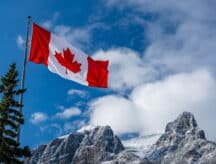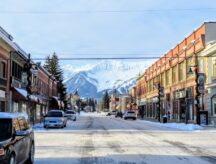How Sean Fraser became Canada’s immigration minister
While working at a law firm in Calgary, Sean Fraser noticed that much of his graduating class now lived in the same city as he—4,800 km away from where they grew up.
In fact, he and all five of his sisters had also left Merigomish, Nova Scotia. Although he loved his job as a lawyer, he wanted to do something to help young people and families stay and work in his home community.
“I thought that could be something meaningful that I could do with my life,” he said in a 2021 town hall meeting with the Canadian Federation of Independent Business.
Discover if You’re Eligible for Canadian Immigration
In 2015, he ran as the Liberal candidate for the Central Nova riding, which includes his hometown. He won a riding that had been dominated by the Conservative party, and has held on to his seat for the past two elections.
This week, on October 26, he was appointed to be Canada's new immigration minister.
1/I am humbled to have been appointed by PM @JustinTrudeau to serve as the Minister of Immigration, Refugees and Citizenship. Immigration will remain a key pillar of Canada’s recovery and I’m committed to ensuring that we continue to have the workers we need, where we need them. pic.twitter.com/IPzjm2cSdU
— Sean Fraser (@SeanFraserMP) October 26, 2021
Fraser studied international and environmental law at Leiden University in the Netherlands. He also has a law degree from Dalhousie University in Halifax.
As a lawyer in Calgary he practiced environmental and human rights law. After being elected to office, he served as the parliamentary secretary to the minister of finance and the minister of "middle-class prosperity," which was removed in the latest cabinet shuffle. Prior to that he was also the parliamentary secretary to the minister of environment and climate change.
Exactly five years to the date before he became immigration minister, Fraser advocated for more immigration to Atlantic Canada in the House of Commons. Nova Scotia has one of the highest proportions of seniors in Canada. On top of that, many young people and immigrants leave the province to pursue job opportunities elsewhere.
Citing the famous Ivany Report, which discussed the importance of immigration to support Nova Scotia's economic growth, Fraser argued the best way to replenish the Atlantic region's population was through a robust immigration strategy.
In the years that followed, Atlantic Canada got the Atlantic Immigration Pilot, which will soon be a permanent program. Early studies of the program suggest that it is working to help improve immigrant retention in the region.
In January this year, Fraser was named "Best Orator" in McLeans' Parliamentarians of the Year Awards, and was a finalist under the "Rising Star in Parliament" category for the second year in a row.
Fraser inherits pandemic challenges, election promises
During the pandemic, Immigration, Refugees and Citizenship Canada (IRCC) has accumulated a backlog of hundreds of thousands of applicants. This past summer, the Toronto Star reported there were more than 561,000 permanent residency applications to process, 748,000 temporary residence applications, and 376,000 citizenship applications. These figures do not include applications that were sitting in the mailroom, and not yet entered into the system.
Since the crisis in Afghanistan, IRCC has shifted resources to process applications for 40,000 Afghan refugees. There are also resources allocated to addressing the 7,300 extra applications submitted to the one-time Temporary Residence to Permanent Residence (TR to PR) pathway.
The Liberal Party promised in its election platform to reduce processing times that have been impacted by COVID-19 to under 12 months, although the platform did not say how. The Liberals also said they would improve applications for family reunification by introducing electronic applications.
Also, since Canada changed its immigration strategy to focus more on applicants who are already in the country, the new minister will have to make decisions on when to resume Express Entry draws that include Federal Skilled Worker Program (FSWP) candidates.
In the platform, the Liberals said they would expand pathways to permanent residence for temporary foreign workers and former international students through the Express Entry points system. This would ideally allow for more temporary residents to be eligible for Express Entry, though IRCC has not announced how the new occupation classification system will affect eligibility.
Fraser also has the opportunity to be the immigration minister who makes good on the Liberal's 2019 promise to end citizenship application fees. We will also be looking out for what he does with the budding Municipal Nominee Program, which is supposed to help address labour shortages in rural communities.
These are only some of the ongoing challenges the new minister will have to address. We will know more about Prime Minister Trudeau's expectations for Fraser when he issues the mandate letters, which outline the minister's priorities and shape the future of Canadian immigration.
On my way home from Ottawa, where I dove right into my new duties as Minister of Immigration, Refugees and Citizenship.
I am looking forward to working with the strong team of public servants at IRCC! pic.twitter.com/AtRyrysfiG
— Sean Fraser (@SeanFraserMP) October 28, 2021
Discover if You’re Eligible for Canadian Immigration
© CIC News All Rights Reserved. Visit CanadaVisa.com to discover your Canadian immigration options.
- Do you need Canadian immigration assistance? Contact the Contact Cohen Immigration Law firm by completing our form
- Send us your feedback or your non-legal assistance questions by emailing us at media@canadavisa.com





